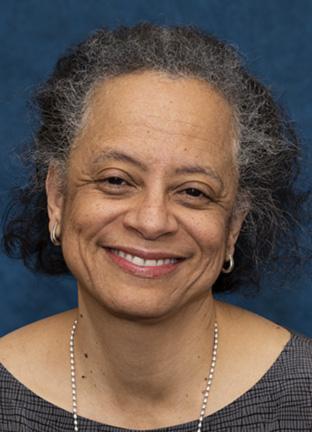ASCO and ACCC Release Recommendations to Increase Diversity in Clinical Trials
A new report from ASCO and the ACCC provides recommendations on how to better represent a wider range of patients from different backgrounds, preferences, and identities within the clinical trial setting.
Lori J. Pierce, MD, FASTRO, FASCO

In an effort to address the subpar measures of diversity, equity, and inclusion (EDI) within the cancer clinical trial setting, the American Society of Clinical Oncology (ASCO) and the Association of Community Cancer Centers (ACCC) released “Increasing Racial and Ethnic Diversity in Cancer Clinical Trials: An American Society of Clinical Oncology and Association of Community Cancer Centers Joint Research Statement” in the Journal of Clinical Oncology. This report offers recommendations from both institutions on how to better represent a wider range of patients from different backgrounds, preferences, and identities within the clinical trial setting with the hope to advance the fight against cancer.1
“Ensuring that every individual with cancer has an opportunity to participate in high-quality, equitable cancer research, will take a concentrated effort by all stakeholders,” said Lori J. Pierce, MD, FASTRO, FASCO, ASCO Board Chair and co-chair of the ASCO-ACCC Steering Group. “Removing barriers to enrollment and participation for people historically underrepresented in clinical trials is a critical scientific and ethical imperative for the entire cancer community.”
The ASCO-ACCC research statement addresses how expanded inclusiveness within clinical trial participation is necessary to understand potential differences in efficacy and safety across diverse populations. Black and Hispanic patients make up 15% and 13% of people with cancer in the US, respectively. The issue, however, is that trials typically populate their studies between 4% and 6% Black patients and between 3% and 6% Hispanic patients.2,3,4
“In releasing these recommendations, we acknowledge that a concerted commitment by all research stakeholders is critically necessary to increase equity, diversity, and inclusion, and address barriers to cancer clinical trial recruitment and participation,” said Randall A. Oyer, MD, the past president for ACC and co-chair of the ASCO-ACCC Steering Group. “Our joint research statement offers a useful and holistic guide for addressing barriers at the clinician, patient, trial, and research program levels. While ASCO and ACCC will continue to work to advance the recommendations in this publication, we believe everyone involved in cancer research will be able to see how they may individually and collectively contribute to this critical endeavor.”
These recommendations detail potential improvements in access to clinical trials, an equity focused design to clinical studies, stakeholder group partnerships, training to eliminate bias and improve inclusion within the trial, EDI investment, and data sharing strategies to better highlight the patient population and its characteristics. The full research statement elaborates further on which stakeholders would be integral in implementing these specific recommendations.
Consisting of EDI experts and stakeholders, the ASCO-ACCC Steering Group compiled extensive literary review and engaged in extensive discussion with the Patient Partners Advisory Group research advocates and patients representing racial and ethnic minority populations to create and come to a consensus on these recommendations.
This ASCO-ACCC Research Statement marks a significant achievement for the ASCO and ACCC partnership. In the summer of 2020, ASCO and the ACCC launched a request for ideas seeking practical solutions and strategies to increase enrollment and participation among minority populations in cancer treatment trials. Based on the responses, the Steering Group then developed and tested a Research Site Self-Assessment and an Implicit Bias Training Program with 75 research sites across the United States. Now that this test is completed, the Assessment and Training Program will be available in this upcoming summer.
References
1. Leading national cancer organizations release wide-ranging recommendations to expand diverse participation in cancer clinical trials. Press release. ASCO Press Center; May 19, 2022. Accessed May 25, 2022. https://bit.ly/3NyvMAn
2. Unger JM, Vaidya R, Hershman DL, et al. Systematic review and meta-analysis of the magnitude of structural, clinical, and physician and patient barriers to cancer clinical trial participation. J Natl Cancer Inst. 2019;111 (3):245-255. doi: 10.1093/jnci/djy221
3. Duma N, Aguilera JV, Paludo J, et al. Representation of minorities and women in oncology clinical trials: Review of the past 14 years. JCO Oncol Pract. 2018; 14(1): e1-e10.doi: 10.1200/JOP.2017.025288
4. Murthy VH, Krumholz HM, Gross CP, et al. Participation in cancer clinical trials: Race-, sex-, and age-based disparities. JAMA. 2004;291(22):2720-2726. doi: :10.1001/jama.291.22.2720